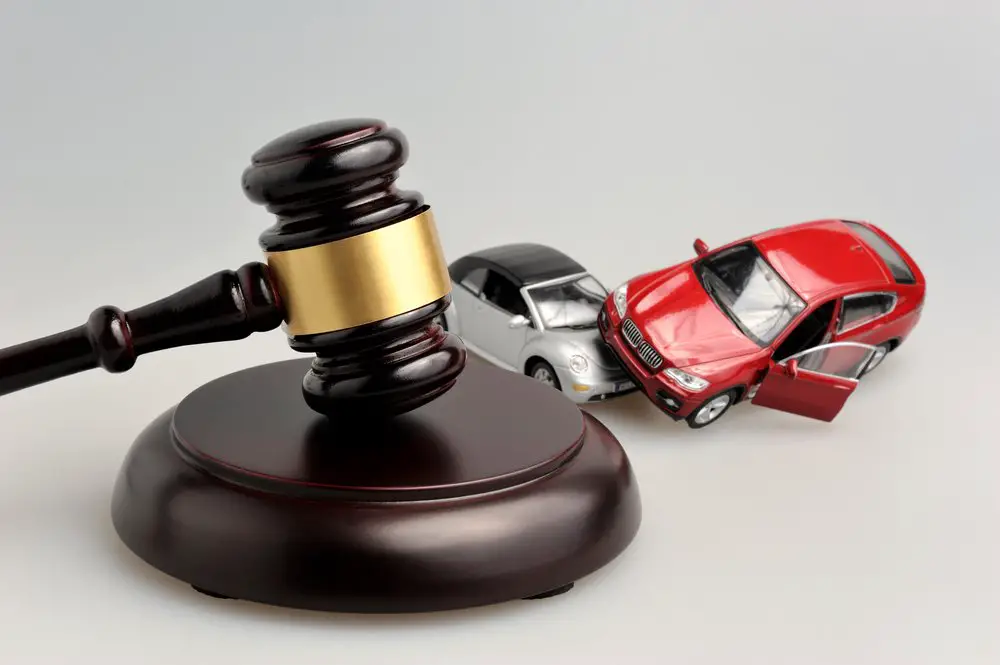Last Updated on February 5, 2024 by John Robinson

Car accidents are unfortunate events that can happen to anyone, at any time. They can cause a lot of stress, trauma, and financial burden on the victim. In such situations, being prepared for a legal case can help you get the compensation you deserve.
Whether it’s a minor fender bender or a major collision, knowing how to prepare yourself for a legal case is crucial. In this blog post, we’ll explore some tips on how to get ready for your car accident lawsuit and ensure that you’re fully equipped to fight your case in court!
Hire a lawyer
Hiring a lawyer is the most important step in preparing for a legal case related to a car accident. A skilled and experienced attorney can help you understand your rights, assess the damages, and represent you in court. When hiring an attorney, look for someone who specializes in personal injury cases and has experience handling car accidents. You may also want to check their track record of successful cases to ensure that they have a good reputation. You can find a car accident attorney by asking friends and family for recommendations or searching online for local lawyers. It’s crucial to meet with your lawyer as soon as possible after an accident, so they can begin investigating the case right away. They will collect evidence such as medical records, police reports, witness statements, and photographs of the scene.
Gather evidence
If you’ve been involved in a car accident and plan to file a legal case, gathering evidence is key. To help build your case and prove what happened, take photos of related items such as damages to vehicles, any injuries or debris on the road, traffic signs, and so on.
Collect contact information from witnesses present at the scene who could potentially support your claim in court. Additionally, keep all medical records associated with the injury for insurance claims or lawsuits.
Speak to witnesses
Having witnesses to the car accident can be crucial in building a strong case. These individuals may have seen what happened and could provide a valuable testimony to support your claim.
It is important to speak with these potential witnesses as soon as possible after the incident. When approaching a witness, it is essential to be respectful and polite. Introduce yourself and explain that you are seeking their help in understanding what happened during the accident.
Remember that they have no obligation to provide information or testify on your behalf, so it is important not to pressure them into doing so. Ask open-ended questions that allow them to describe their experience of the event from start to finish without leading or prompting them toward a specific answer. Any discrepancies between their version of events and yours should also be recorded.
Take pictures
Taking pictures after a car accident is crucial to building your case. The photos can serve as evidence of the damage caused to your vehicle and any injuries sustained in the collision. Firstly, make sure you have a good camera or smartphone with a decent resolution. Take multiple pictures from different angles including close-ups of damages, license plates, and street signs if applicable.
Secondly, capture images of the surrounding area including traffic signals, skid marks on the road surface, or anything else that may be relevant to your case. Thirdly, don’t forget about photographing any visible injuries you sustained during the accident such as bruises or cuts. Make sure you document all aspects of your injury- this will help support your claim for compensation later on.
Get a police report
Getting a police report is an essential step in preparing for a legal case about a car accident. It provides official documentation of the incident, including details such as time, date, and location. When you contact the police after an accident, they will arrive at the scene to investigate and file a report.
They will speak with all parties involved, take photographs and gather any other relevant information that may be useful in determining fault. It’s important to note that having a police report does not automatically mean your case will be successful or that you’ll receive compensation for damages. However, it can serve as valuable evidence if there are disputes over what happened or who was at fault.
See a doctor
One of the most important things you should do after a car accident is to see a doctor. Even if you feel fine, it’s still important to get checked out by a medical professional. Some injuries may not show up immediately and could worsen if left untreated. When you visit your doctor, be sure to tell them about any symptoms or pain that you’re experiencing, no matter how minor they may seem.
They will be able to evaluate your condition and determine if there are any underlying issues that need attention. In addition, seeing a doctor can also strengthen your legal case in the event of a lawsuit. Your medical records will document any injuries sustained as a result of the accident and provide evidence for your case.
Cooperate with your insurance company
It is important to cooperate with your insurance company after a car accident. Your insurance company will be responsible for covering the damages and expenses related to the accident, so it’s essential that you work together with them. The first step in cooperating with your insurance company is to report the accident as soon as possible. This means contacting your insurer and providing them with all of the necessary information about the accident, including any police reports or witness statements.
After reporting the accident, your insurance company may ask you to provide additional documentation such as medical bills or repair estimates. It’s important that you provide this information promptly and accurately in order to avoid delays in processing your claim.

Being involved in a legal case about a car accident can be stressful and overwhelming. However, with the right preparation, you can increase your chances of success and ensure that you receive fair compensation for any damages or injuries sustained. Hiring an experienced lawyer is essential to guide you through the legal process and protect your rights. Gathering evidence such as witness statements, photographs, police reports, and medical records will provide crucial support for your case.


